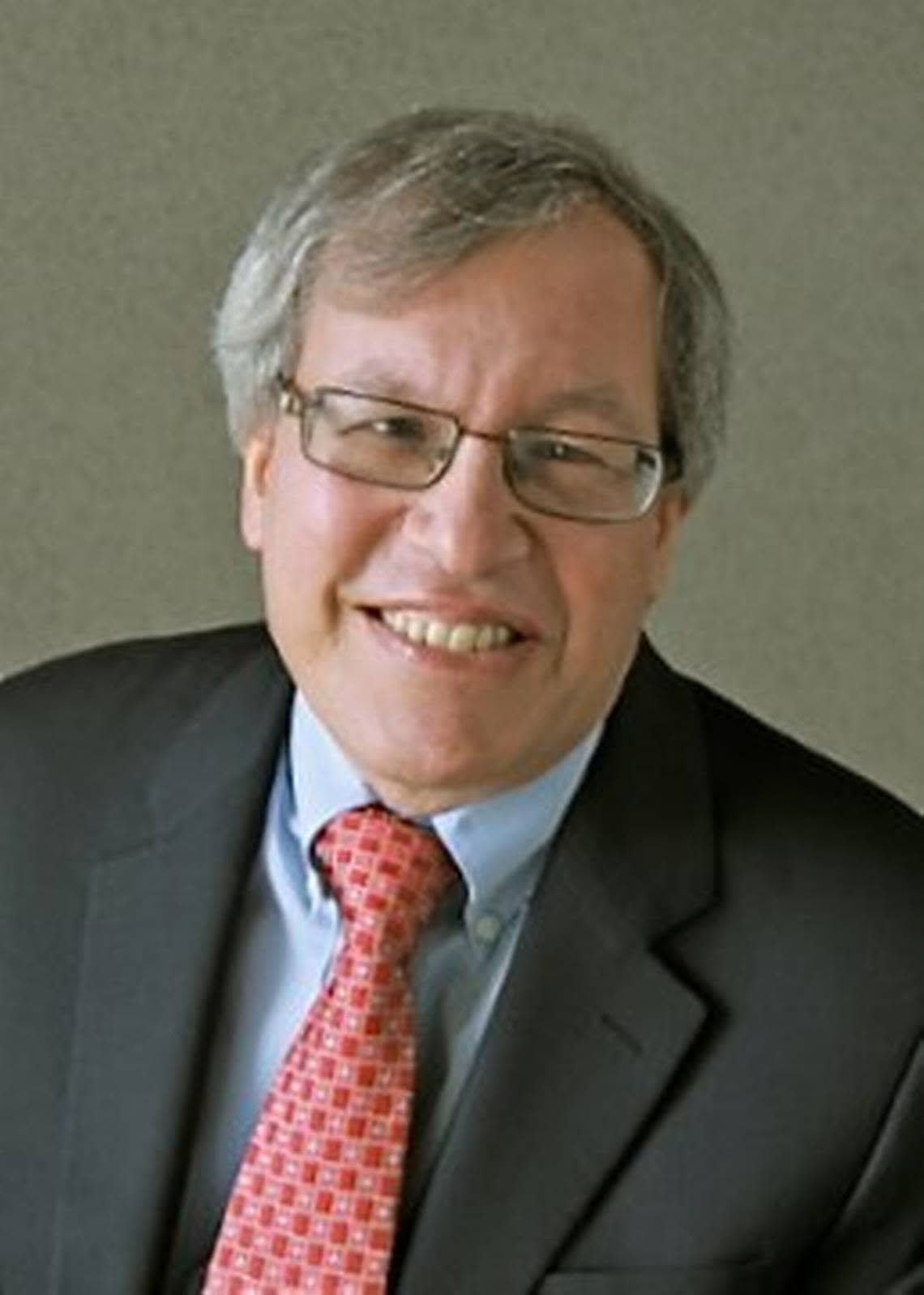Trump must be prosecuted for his crimes in attempting to subvert our democratic system | Opinion
Almost three hours of oral arguments in the Supreme Court on April 26 made what should be a simple issue seem complicated: a former president should have no immunity from criminal prosecution for illegal acts taken while in office. The issue in Trump v. United States is whether Donald Trump can be prosecuted for his conduct in attempting to undermine the results of the 2020 presidential elections. The case should be easy and decided upon the most basic principle of the rule of law: no one, not even the president, is above the law.
Yet Trump’s lawyer, D. John Sauer, contended that a president has absolute immunity from criminal prosecution for “official acts” — broadly defining what that includes to be almost anything a president does while in office. In response to a question from Justice Sonia Sotomayor, Sauer said a president ordering the assassination of a political rival could be deemed an official act and immune from criminal prosecution. Perhaps most astounding, in response to a question from Justice Elena Kagan, Sauer said a president ordering a military coup to stay in power could be deemed an official act.
Opinion
Trump’s lawyer said a president could be prosecuted criminally only if first impeached by the House of Representatives and removed by a two-thirds vote of the Senate. But as Justice Ketanji Brown Jackson pointed out, that would provide a person who is no longer president total immunity from prosecution. And given the political realities that make a two-thirds vote of senators highly unlikely, it would mean that there could virtually never be a prosecution of a president or former president.
The focus of the oral argument was on what constitutes an “official act” for purposes of immunity. In a devastating series of questions, Justice Elena Kagan asked Trump’s lawyer about what was alleged in the federal court indictment. It was clear that it is about what Trump did to help himself politically and was not at all about discharging the powers of the presidency.
Michael Dreeben, representing Special Counsel Jack Smith, powerfully made this point: “Organizing fraudulent slates of electors, creating false documentation that says, ‘I’m an elector, I was appointed properly,’ that is not official conduct, that is campaign conduct.”
Unfortunately, what should be a case about the non-partisan principle that no one is above the law, turned quite partisan at oral argument. Conservative Justice Samuel Alito indicated that he believes Trump is being treated unfairly. In his lengthy questions to Dreeban, Alito expressed a very broad view of presidential immunity.
Justices Neil Gorsuch and Brett Kavanaugh, Trump appointees to the Supreme Court, wanted to look not at Trump’s conduct, but on their sense of a need for expansive presidential immunity from prosecution.
“I’m not concerned about this case, but I am concerned about future uses of the criminal law to target political opponents based on accusations about their motives,” Gorsuch said. “We’re writing a rule for the ages.”
That is certainly right, and it is precisely why the court needs to rule emphatically against Trump. It must be unmistakably clear that presidents who violate the law are held accountable.
Following oral arguments, it seems most likely that the court will be ideologically divided. The conservative majority seems likely to say that a president has absolute immunity for official acts (fairly broadly defined) but not for “private acts.” It will remand the case to the lower courts to decide which of the indicted offenses are official acts and which can be the basis for criminal prosecution. That could take a long time to litigate, pushing any trial in federal court in the District of Columbia off for months and beyond the November election. That, in itself, is a huge victory for Trump. If reelected, he certainly would try to pardon himself from any federal criminal liability.
My hope was that the Supreme Court would unanimously rule against Trump as it did against Richard Nixon in the Watergate tapes case and against Bill Clinton in the civil suit against him by Paula Jones. By doing so, the court would make clear that just because the conduct occurs while in office does not mean that it is immune from prosecution.
At the very least, I hope the court will narrowly define what an official act is and allow Trump to be prosecuted for his crimes in attempting to subvert our democratic system.
Erwin Chemerinsky is dean and professor of law at the UC Berkeley School of Law.


